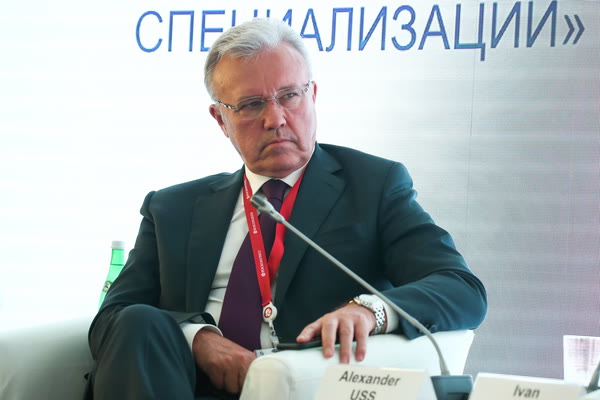
An Innovation Economy: Opportunities for Smart Specialization in the Regions
KEY CONCLUSIONS
Specialization based on innovation will unleash the regions’ potential
“The main idea is to find a specific feature for each Russian region in order to maximize its potential. Smart specialization is the maximum combination of all factors in the region that would allow to be remarkably more effective in one or another area of development, and to make it a competitive advantage of the region,” Vadim Zhivulin, Deputy Minister of Economic Development of the Russian Federation.
“Diversification, aimed at added value, gives an opportunity to change the specialization of regions depending on market conditions and current demand. A region that is dependent on oil or other sector related to extraction and processing of mineral resources will always be an outsider, no matter how big its budget is,” Ivan Fedotov, Director, Association of Innovative Regions of Russia (AIRR).
Transition to a new quality of regional and city infrastructure management is instrumental in the country’s development
“Regional development is becoming a priority for the development of the country. Growth points in our country are infrastructure development, regional development; it is not accidental the World Economic Forum has prioritized the issue of smart cities and artificial intelligence in managing agglomerations as one of the most important ones,” Alexander Ivlev, CIS Managing Partner, Deputy Regional Accounts Leader for Central, Eastern and Southeastern Europe & Central Asia, EY.
The speed of innovation is crucial for the development of the economy
“Specialization is the most important factor for Russia’s success, and the speed and scale of technological development is the main challenge today. New technologies create new markets and opportunities for countries, regions and companies. The role that Russia will play in the digital economy mainly depends on its ability to quickly and intelligently adapt, distribute and apply new solutions in the country and its regions,” Alexander Klaeger, Chief Operating Officer, Head of Cloud Business for Middle and Eastern Europe, SAP.
“Innovations are not just a fashionable option for a company today. Innovation and competition: that is the cornerstone that pushes any successful business forward,” Evgeniy Nikitin, Chief Executive Officer, RUSAL.
PROBLEMS
Employees are not ready for the challenges of innovative development
“The most difficult thing is the capacity for bringing innovative solutions across the cultural gap, and the average employee’s unwillingness to perceive and be a qualified customer of innovative products,” Sergey Malyshev, Senior Vice President, Financial Director, Norilsk Nickel.
“One of the key problems for businesses is employees’ competence. RSPP conducts surveys regularly, and although we previously placed taxation or administrative barriers first, the number one problem for businesses now is the problem of qualified personnel,” Sergey Mytenkov, Vice President, Russian Union of Industrialists and Entrepreneurs (RSPP).
Intense competition for the most competent personnel
“Labour mobility in the world nowadays is unprecedented. There is an ongoing battle for talents. We can develop scientific clusters, but we must be sure that talented people are going to live in a comfortable environment. We will not retain real talents by putting barriers,” Aleksey Kozlov, Member of the Management Board, Managing Director, SIBUR.
SOLUTIONS
Tax incentives for innovation
“Smart specialization means that the companies in the region use the most modern and efficient work methods. And in order to encourage them to do so, we may ask the Federal Government to provide certain tax breaks for those who respond to such requests and cooperate with scientific and educational institutions,” Alexander Uss, Governor of Krasnoyarsk Territory.
Active implementation of digitalization
“Digitalization has become an essential need for us. Taking into account the volume of mining operations that Polyus currently performs, which is 300 million cubic metres of ore per year, it is simply impossible to process such volumes without appropriate IT support,” Pavel Grachev, Chief Executive Officer, Polyus.
“We cooperate with 120 universities in Russia and the CIS, and 170 million euros will be invested by 2020 into educating people who would participate in digitalization activities,” Alexander Klaeger, Chief Operating Officer, Head of Cloud Business for Middle and Eastern Europe, SAP.
Cooperation of business, educational and scientific communities
“The scientific and educational communities must not invent ephemeral tasks, but focus on serving the interests of companies,” Alexander Uss, Governor of Krasnoyarsk Territory.
For more information, visit the Roscongress Foundation's Information and Analytical System at roscongress.org/en.








